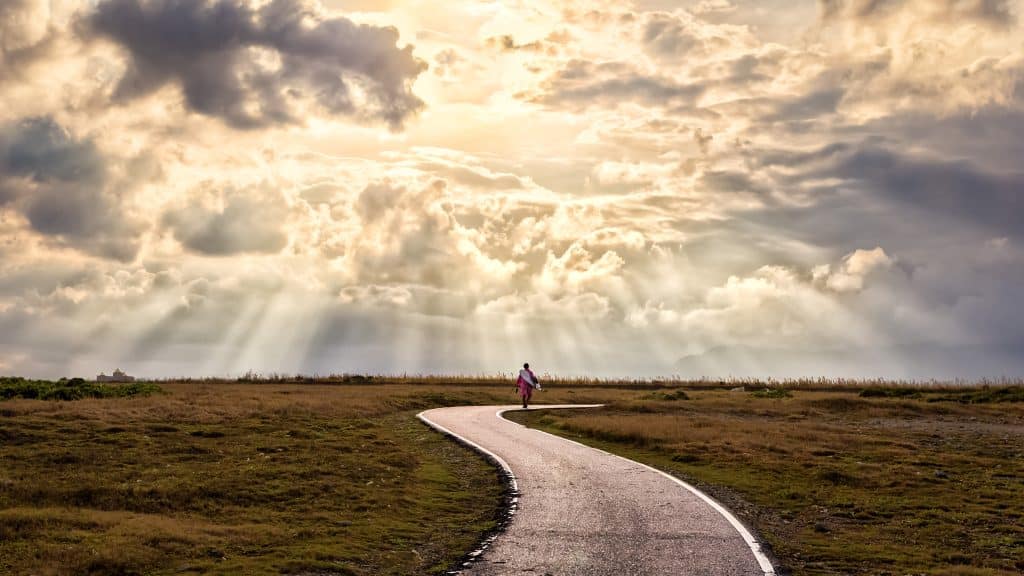“I am like a dude who peaked in high school”; “I just am not cut out for the civilian world”; “I am a fraud”; “Any accomplishment I have has been luck, or someone else’s pity”; “I am not good at anything anymore”; “my professional life sucks”; “I am a bad father, partner, friend, teammate”; “I understand why no one likes me” – these are all things I have said within the last six months.
I have to start this article with a couple of apologies because this one will break a few of my rules.
First, I rarely write in the first person. Ideas are more important to me than the person sharing them.
Second, I rarely write about myself, not just out of humility but because I believe that personal stories shouldn’t eclipse the perspectives they’re meant to convey.
Third, this article leans into transparency more than honesty. While the two sound similar, they’re not. Honesty is telling you what you need to know. Transparency is showing you everything, warts and all.
Now that we’ve got that out of the way let’s dig in.
My wife Jen recently called something to my attention. She reminded me that while I write about being intentional, finding purpose in every event, and embracing optimism—even in the darkest times—I don’t always live by these ideals. Ego gets in the way. Emotions take the wheel. Negativity spirals out of control.
This realization led me to confront the gap between who I want to be, who I present myself as, and who I am daily. We often assume folks doling out advice have got it all together. Let me debunk that myth: No one has it all figured out. I certainly don’t. I react instead of responding, let emotions dictate actions, and I’ve been unkind. I’ve battled depression, attempted suicide, lost a feeling of purpose, and questioned my worth. I sometimes look at my achievements and chalk them to luck rather than merit.

This isn’t a pity party or a confession for the sake of it. It’s an acknowledgment that we’re all works in progress. None of us have life completely figured out, and that’s okay. The real journey is in the trying, the learning, and the growing. In those tiny steps forward, however shaky, we find our true north.
In the curated galleries of social media, where life is often portrayed through rose-colored filters, the trap of comparative analysis lies in wait. This compulsion to measure our behind-the-scenes against everyone else’s highlight reel is not just misleading; it’s a direct assault on our contentment. Each time we scroll through feeds of triumphs and curated perfection, we risk succumbing to a skewed reality that amplifies our insecurities and minimizes our self-worth. The snapshots we see are mere fragments of a larger narrative, often devoid of the struggles, setbacks, and the mundane that make up the human experience. As we unwittingly engage in this comparison game, we exchange our joy for a mirage of success that may not even exist. To preserve our joy, we must remember that these images are not the whole truth but simply a perspective—often a facade intended for public consumption, not a mirror reflecting the complexities of real life.
I do not wish to add to anyone’s loss of joy, and sometimes, if one looks at what I put out into the world, it might be easy to think my life is nothing but “success.” That is not the truth. I fail way more often than I succeed. I am frequently reminding myself that I am not being “my best self,” and I am not always proud of my actions. I look at these opportunities as a way to learn, get better, and be better and then share what I have learned to see if it might assist someone else in being a better version of themselves. My mistakes and missteps made me feel hopeless, but I have turned that feeling by using the lessons learned to see if I can help others with what I have learned from the experiences.
Let’s not conflate not feeling hopeless with feeling successful. Success is sporadic. It’s those shining moments when everything aligns. But not feeling hopeless—that’s where the real victory lies. That’s what allows us to wake up each day, to keep putting one foot in front of the other, and to tackle life with a semblance of enthusiasm.

The nature of success is far more enigmatic than we often care to admit. Consider the rigors of Ranger School, where the unforgiving crucible of training sifts out those who meet the standard from those who don’t. But what of the would-be Ranger who doesn’t earn his tab because he’s caught sleeping versus another who, by sheer luck or timing, escapes notice for the same offense? Here, the line between success and failure blurs, muddied by circumstance. It begs the question: is success merely the fortunate outcome of unseen moments, the roll of dice in our favor? This isn’t to diminish achievement’s value or suggest that success is arbitrary. Rather, it’s to acknowledge that luck and timing often play silent, pivotal roles. In understanding this, we might approach our successes with humility and our failures with grace, knowing that the margin between them can sometimes be as thin as chance.
Another important point is that success is an ever-shifting, subjective concept. What counts as a “win” varies from person to person, even for the same individual at different times. Sometimes, success is quantified by a swollen bank account, other times by the positive impact you’ve made on someone else’s life. On some days, the simple act of gaining a new piece of wisdom is a resounding victory. And let’s not forget that success can be compartmentalized; you might be thriving in your role as a partner one moment, and in the next, finding fulfillment as a parent or as an income earner.
Success is also highly situational. It’s influenced by where we are in time and space. There might be days when just being genuinely happy is your pinnacle of success. But remember, even during those times when happiness seems elusive, it doesn’t mean you’re not successful in some other vital aspect of your life. When we compartmentalize success, we often forget to see our achievements holistically, letting a failure in one area cloud our perception of victories in another.
Here’s where not feeling hopeless comes into play. Not feeling hopeless is more than the absence of despair; it’s the presence of hope. And where there’s hope, there’s room for growth, for striving, for evolving. Hope allows us the grace to redefine our measures of success, to adapt them to our current circumstances, and to continue pressing forward. Hope tells us that while today’s metric for success might be different from tomorrow’s, each brings with it a unique and valuable form of growth.
So, as you read my articles and ponder the ideas I share, remember that I’m right there with you. We’re all on unique paths, testing different ideas, learning from each other, and hopefully, growing iteratively better together. The key isn’t to project a vision of perfection but to be open to improvement, no matter how incremental.

I stand not as an expert perched upon a pedestal of infallibility but as a fellow traveler keenly observing, thinking, and analyzing the world and our place within it. The term ‘expert’ carries an air of finality, an end to learning, which contradicts the very essence of our human experience—a constant journey of growth and understanding. You won’t find, in my words, the definitive commandments from an oracle; instead, you’ll find the musings of someone passionately dedicated to the pursuit of personal and collective betterment.
Consider this an open invitation to explore ideas with me, not because I have all the answers but because, in my quest for improvement, I might stumble upon insights that resonate. I share not from a place of perfected wisdom but from a humble recognition of my imperfections and a genuine desire to ponder the questions that shape our existence. We are all students of life, and if my reflections prompt a moment of clarity or a step towards a better version of oneself, then our paths crossing have been a worthwhile journey. So let’s walk this path together, not as experts, but as curious souls with a shared aspiration to uncover a little more about the human condition with each passing day.
Thank you for taking the time to read this (and thank you, Jen, for calling me out and inspiring me to write this). Here’s to our collective journey toward becoming better versions of ourselves. What we see of each other is merely a snapshot, a glimpse of the whole picture. Let’s endeavor to understand that the full scope of anyone’s life includes challenges, mistakes, and learning opportunities. And remember, it’s okay not to have it all figured out, I don’t know if any of us do or ever will —the real victory is in not giving up.
___________________________
J.C. served in the U.S. Army as an infantry officer for 20 years, primarily in special operations and special missions units with more than 11 combat tours. Since retiring from the military, JC has brought his innovative and unconventional thoughts on education, leadership and resiliency into the private sector, consulting with Fortune 500 companies, the NFL, NBA, NCAA and professional sports teams including the Denver Broncos, Carolina Panthers and the Charlotte Hornets.
He holds a Masters Degree from the Naval War College and was a Senior Fellow in the Service Chief’s Fellowship at the Defense Advanced Research Projects Agency (DARPA).
He has earned 3 Bronze Stars, 3 Meritorious Service Medals, a Joint Commendation Medal, and the Order of Saint Maurice. He is a Liberty Fellow, a part of The Aspen Institute and the Aspen Global Leadership Network.
As the Voice of the Veteran Community, The Havok Journal seeks to publish a variety of perspectives on a number of sensitive subjects. Unless specifically noted otherwise, nothing we publish is an official point of view of The Havok Journal or any part of the U.S. government.
Buy Me A Coffee
The Havok Journal seeks to serve as a voice of the Veteran and First Responder communities through a focus on current affairs and articles of interest to the public in general, and the veteran community in particular. We strive to offer timely, current, and informative content, with the occasional piece focused on entertainment. We are continually expanding and striving to improve the readers’ experience.
© 2024 The Havok Journal
The Havok Journal welcomes re-posting of our original content as long as it is done in compliance with our Terms of Use.



